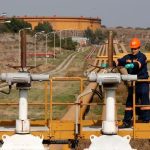Lawyer İsmail Hakki Atal, representing the environmental associations of the Eastern Mediterranean, has expressed concern over the rapidly rising sea temperatures in the Mediterranean, particularly in Mersin-Akkuyu, where the Akkuyu nuclear power plant is under construction. Last August, temperatures peaked at 30.5 degrees Celsius, while this year, they rose to 31.9 degrees Celsius. According to Atal, these alarming temperatures have rendered the plant’s cooling system ineffective.
Atal highlights a worrying trend: “When the cooling water temperature exceeds 28 degrees, nuclear facilities worldwide are at significant risk”. He cites recent events in France, where nuclear power plants were forced to shut down due to heat waves that made effective cooling impossible.
In addition, Atal noted that even the Baltic Sea, one of the world’s coldest, experienced temperatures above 25 degrees Celsius in 2108, prompting Sweden to suspend operations at the Ringhal nuclear power plant. In light of these concerns, on June 22, 2023, the Mersin 2nd Administrative Court asked the Ministry of Environment and Urbanization about the adequacy of the cooling water as part of the environmental impact assessment. The Ministry’s response a month later lacked any substantive review of the issue. Instead, the Ministry offered a vague model predicting the potential heating of seawater by the discharged water.
Atal expressed dismay at the apparent disregard for concrete risks by adding, “The construction of the Akkuyu nuclear power plant is based on shaky foundations, putting Turkey’s future at risk.”
His concerns aren’t limited to rising sea temperatures. Atal stressed that scientific research shows that the world’s oceans are warming due to climate crises. Alarmingly, the eastern Mediterranean, where Akkuyu is located, is warming twice the global average. “The Akkuyu site has the dubious distinction of being the only nuclear site in the world where the average ocean temperature exceeds the terrestrial average,” he stressed.
He concluded with a dire warning about the Akkuyu project, which sits precariously on the North Anatolian Ecemiş Fault Line, where a major earthquake is imminent. With ownership and management of the plant in the hands of Russia, only 700 million euros have been set aside for potential disaster responsibilities, which is woefully inadequate compared to the $1 trillion cost incurred by Japan after the Fukushima disaster. Atal stated, “As we move further into a new century in Turkey where scientific predictions are disregarded, we remain committed to our fight against the looming disaster that is Akkuyu.”
Source: Gerçek News



